Last Updated on October 25, 2023 by Toya
Need a quick substitute for eggs in a pinch? Check out this list of 25 amazing egg substitutes that actually work!
Whether you have dietary restrictions or simply find yourself out of eggs, finding the right substitutes for eggs can make all the difference in your cooking and baking.
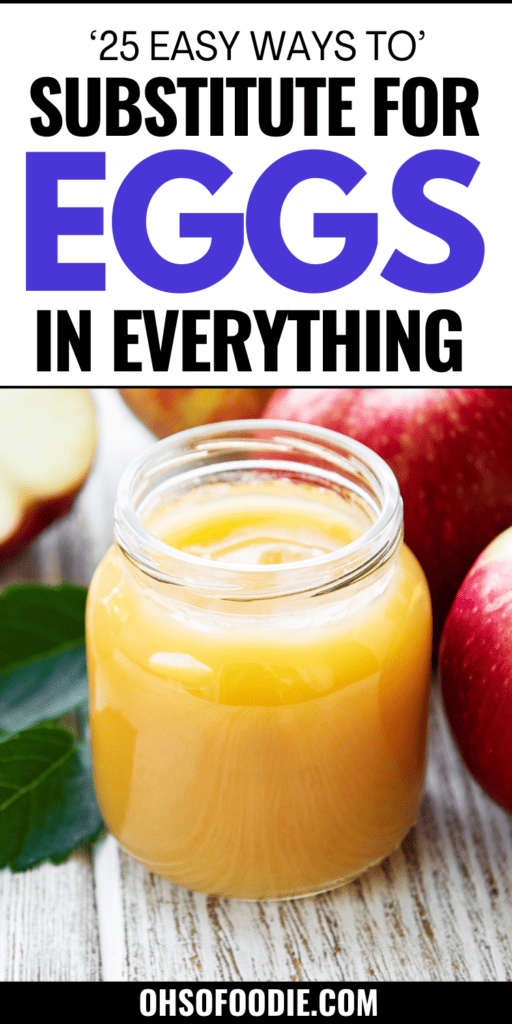
Luckily, there are plenty of egg alternatives available…some of them are regular kitchen staples too!
From flaxseed meal to mashed bananas, I’ve got you covered with simple and effective egg substitutes that will help you achieve the desired results in your recipes.
Why Substitute Eggs?
Whether you have allergies, ethical concerns, or simply find yourself out of eggs, finding a substitute for eggs doesn’t need to be hard.
Eggs play an important role in many recipes, providing structure, moisture, and binding agents. Without eggs, dishes may turn out dry or crumbly, and some recipes may not work at all. However, by understanding the purpose of eggs in cooking and baking, you can choose the most suitable alternative for your needs.
Fortunately, there are many substitutes for eggs that you can use in your recipes, offering different textures and flavors. These egg alternatives include flaxseed meal, applesauce, tofu, yogurt, mashed bananas, silken tofu, commercial egg replacers, and so much more. Let’s discuss each below.
Amazing egg substitutes for all your needs
Flaxseed Meal
Flaxseed meal is a popular substitute for eggs in baking, particularly for binding purposes. It is a nutritious alternative that not only adds moisture but also provides some health benefits. Additionally, it has a nutty flavor that complements many baked goods.
1 egg = 1 tablespoon flaxseed meal + 3 tablespoons water
To use flaxseed meal as an egg substitute:
- Mix 1 tablespoon of flaxseed meal with 3 tablespoons of water in a small bowl.
- Let the mixture sit for at least 5 minutes until it thickens and resembles the consistency of an egg.
- Use the mixture in place of one egg in recipes for baked goods and other dishes that require binding.
Applesauce
Applesauce is a great substitute for eggs in baking recipes that require moisture. It can help bind the ingredients together and give the dish a slightly sweeter taste. Unsweetened applesauce is recommended as a substitute for eggs, as it won’t add extra sugar to the recipe.
To use applesauce as an egg replacement, simply mix together 1/4 cup of applesauce with 1/4 teaspoon of baking powder. This mixture can replace one egg in most baking recipes.
Keep in mind that applesauce can change the texture and flavor of the final product, so it may not be suitable for all recipes. It works best in recipes such as quick bread, muffins, and pancakes.
Tofu
Tofu is a great substitute for eggs if you’re vegan or allergic to eggs.
Tofu can mimic the texture and binding properties of eggs, making it a versatile ingredient in cooking and baking.
To use tofu as an egg replacement, you can puree it in a blender or food processor until it becomes smooth and creamy. The amount of tofu you need will depend on the recipe; usually, 1/4 cup of blended tofu can replace one egg.
It may not work well in recipes that require a light and airy texture, such as cakes.
Tofu works well in recipes such as quiches, frittatas, and creamy desserts. Its neutral flavor makes it a versatile ingredient that can be used in both sweet and savory dishes.
Yogurt: A Versatile Egg Substitute
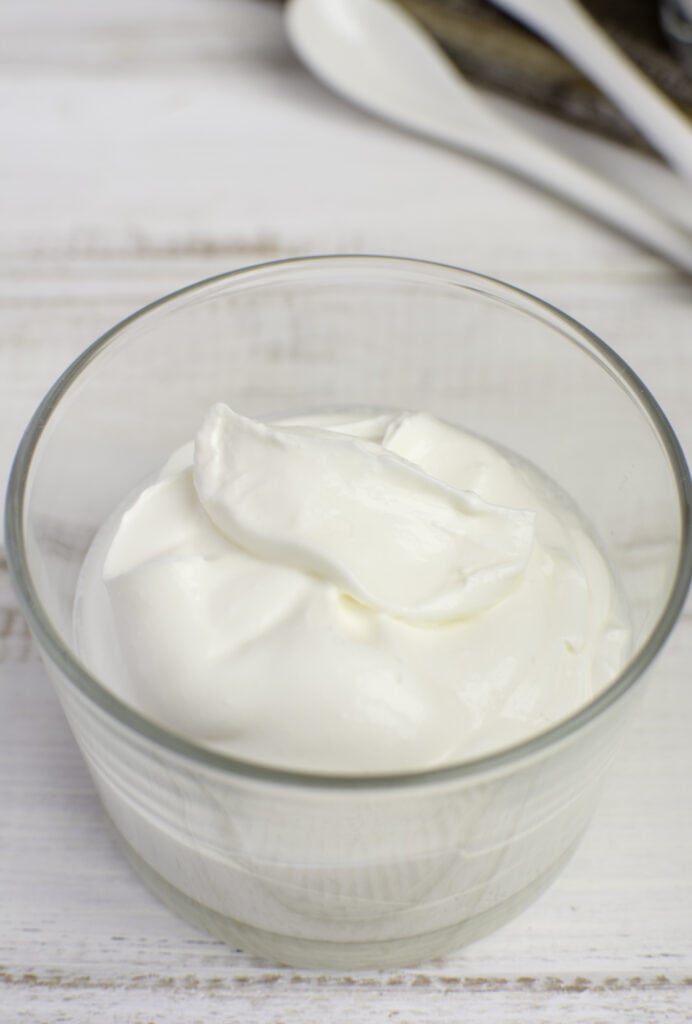
If you’re looking for an egg substitute that can add moisture and creaminess to your dishes, yogurt might be the perfect solution. This egg alternative works especially well in baked goods like cakes, muffins, and pancakes, where eggs are primarily used for binding and moisture.
When using yogurt as an egg replacement, make sure to choose plain, unsweetened yogurt with a thick and creamy consistency. Greek yogurt or strained yogurt, in particular, can work wonders in recipes that require a thick and creamy texture.
| Egg Quantity | Yogurt Quantity |
|---|---|
| 1 large egg | 1/4 cup of yogurt |
| 2 large eggs | 1/2 cup of yogurt |
| 3 large eggs | 3/4 cup of yogurt |
| 4 large eggs | 1 cup of yogurt |
When substituting yogurt for eggs, it’s important to note that the texture and flavor of the final product may differ slightly. Yogurt can add a tangy flavor and a moist texture to the dish, which may be desirable or may require some adjustment to other ingredients.
Overall, yogurt is a great substitute for eggs when you’re looking for a nutrient-dense and versatile ingredient that can add moisture, creaminess, and tangy flavor to your recipes. Give it a try and see how it works for you!
Mashed Banana
Mashed banana is a great egg substitute due to its binding properties. Use 1/4 cup of mashed banana to replace one egg in your recipe. Make sure to use ripe bananas for best results.
| Egg Replacement | Quantity |
|---|---|
| Mashed Banana | 1/4 cup |
Use mashed banana in recipes like muffins, cakes, and pancakes.
Buttermilk
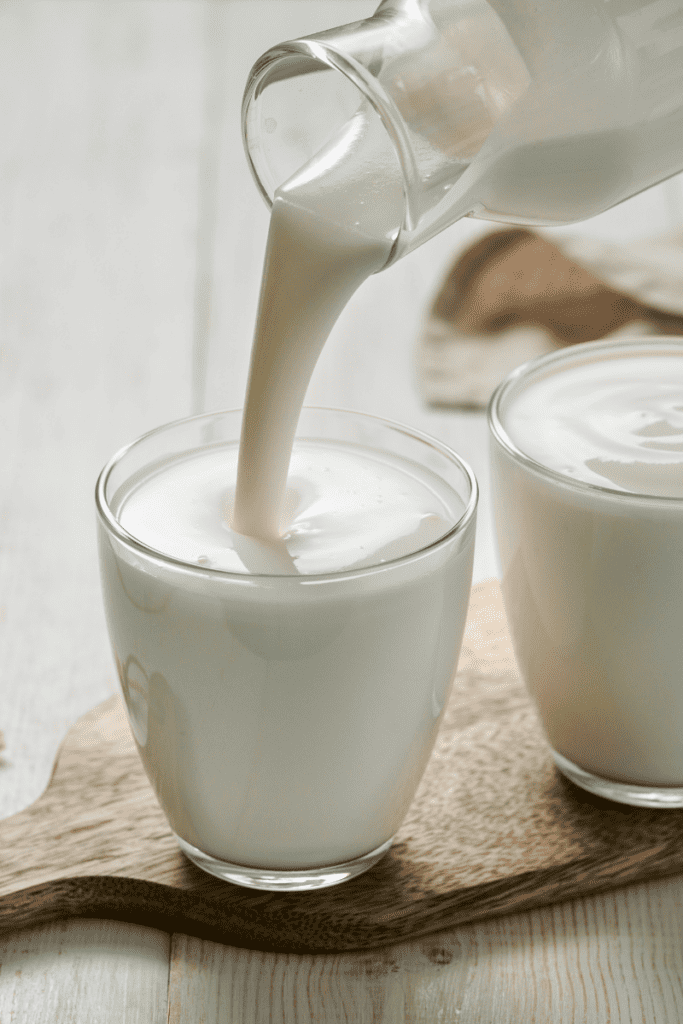
When you find yourself short on eggs, buttermilk can be a reliable substitute that adds moisture and structure to your baked goods.
Buttermilk contains acid, which activates baking soda and helps your batter to rise. Unlike regular milk, buttermilk is thicker in texture and has a tangy taste.
| Ingredient | Amount | Replacement |
|---|---|---|
| Egg | 1 | 1/4 cup of buttermilk |
When using buttermilk as an egg substitute, reduce the amount of leavening agents, such as baking soda or baking powder, slightly. This ensures your recipe doesn’t rise too much and lose its shape.
Whether you are vegan, allergic to eggs, or simply ran out of eggs, buttermilk is a versatile and tasty substitute that can save your recipe and add some delicious tang to your baked goods.
Vinegar and Baking Powder
If you’re out of eggs, vinegar and baking powder can be used to mimic the binding and leavening properties of eggs. This substitute works particularly well in baked goods like cakes and cupcakes. Simply mix one tablespoon of vinegar with one teaspoon of baking powder to replace one egg.
| Egg Replacement | Quantity | Usage |
|---|---|---|
| Vinegar and Baking Powder | 1 tablespoon vinegar + 1 teaspoon baking powder | Baked goods, especially cakes and cupcakes |
Make sure to mix the two ingredients together before adding them to your recipe. Keep in mind that this substitute may not work well in recipes that require a lot of eggs, as it may affect the overall texture and flavor of the dish.
Carbonated Water
If you’re looking for an egg replacement that adds airiness and lift to your recipes, carbonated water might just be the perfect option. This substitute works especially well in recipes like pancakes and waffles. Use 1/4 cup of carbonated water for each egg in your recipe.
| Pros | Cons |
|---|---|
| Adds airiness and lift to recipes | May alter the taste slightly |
| Easy to find in grocery stores | May not work as well in certain recipes |
| Low calorie and natural |
Yogurt and Baking Powder
Yogurt is a versatile ingredient when it comes to substituting for eggs in baking. When mixed with baking powder, it can provide moisture and structure, yielding a result similar to that of using eggs.
| Ingredient | Quantity | Equivalent to 1 Egg |
|---|---|---|
| Yogurt | 1/4 cup | |
| Baking Powder | 1/2 teaspoon |
To use yogurt and baking powder as an egg replacement, simply mix 1/4 cup of yogurt with 1/2 teaspoon of baking powder for each egg required in your recipe. Make sure to stir the mixture until it is well-combined.
This egg substitute is ideal for creating fluffy pancakes or moist muffins. Keep in mind that the acidity of the yogurt might affect the final outcome of your recipe. For instance, if your recipe requires leavening agents, such as baking soda or baking powder, you may need to adjust the quantity to accommodate for the acidity of the yogurt.
Tips for Using Yogurt and Baking Powder as an Egg Substitute
- Use plain, unsweetened yogurt for best results. Flavored or sweetened varieties might alter the taste of your recipe.
- Try using Greek yogurt, which has a thicker consistency, to enhance the texture of your baked goods.
- When using yogurt to replace eggs, avoid overmixing the batter. Overmixing can cause gluten formation and result in tough baked goods.
With this simple egg-free alternative, you can enjoy your favorite baked treats without the need for eggs.
Aquafaba – The Vegan Egg Substitute
If you’re looking for a vegan alternative to eggs, aquafaba is an excellent option. Aquafaba is the liquid from cooked chickpeas, and it has become increasingly popular in vegan and plant-based cooking. This liquid can be used as an egg substitute in many recipes, especially those that require some stability or a fluffy texture.
When using aquafaba as an egg replacement, use 3 tablespoons of liquid to replace 1 egg. Make sure to whisk or beat the aquafaba until it becomes frothy before adding it to your recipe. This will ensure that it provides the necessary structure and binding properties.
| Egg Quantity | Aquafaba Quantity |
|---|---|
| 1 egg | 3 tablespoons of aquafaba |
| 2 eggs | 6 tablespoons of aquafaba |
| 3 eggs | 9 tablespoons of aquafaba |
Nut Butters
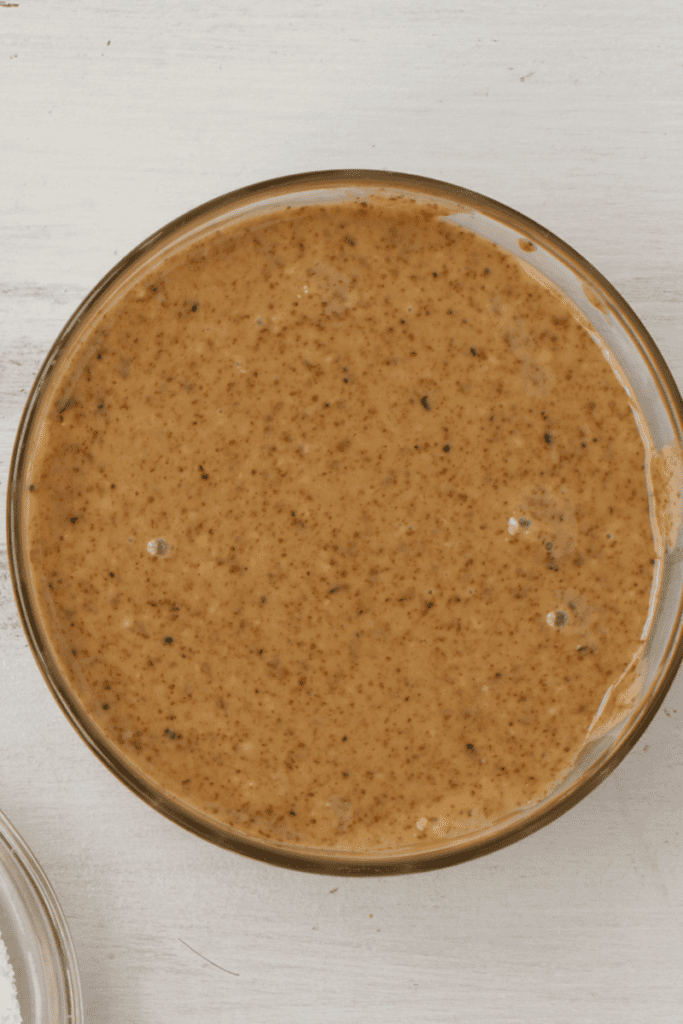
Nut butters, such as almond or peanut butter, can be an excellent substitute for eggs in certain recipes. They work particularly well in baked goods and desserts, adding a rich flavor profile to your dishes.
To replace one egg, use 3 tablespoons of nut butter. Make sure to use a smooth and creamy variety, as chunky versions may not blend well with other ingredients.
| Pros | Cons |
|---|---|
| Adds a rich and nutty flavor to dishes | May not work well in recipes that require a neutral taste |
| Contains healthy fats and protein | Not suitable for those with nut allergies |
| Acts as a binding agent to hold ingredients together | May alter the texture of some dishes |
Overall, nut butters are a versatile and tasty egg replacement, perfect for those looking to explore new flavors in their cooking.
Cornstarch
Use 1 tablespoon of cornstarch mixed with 3 tablespoons of water to replace one egg. This substitute is ideal for recipes that require thickening, such as custards or sauces.
Chia Seeds
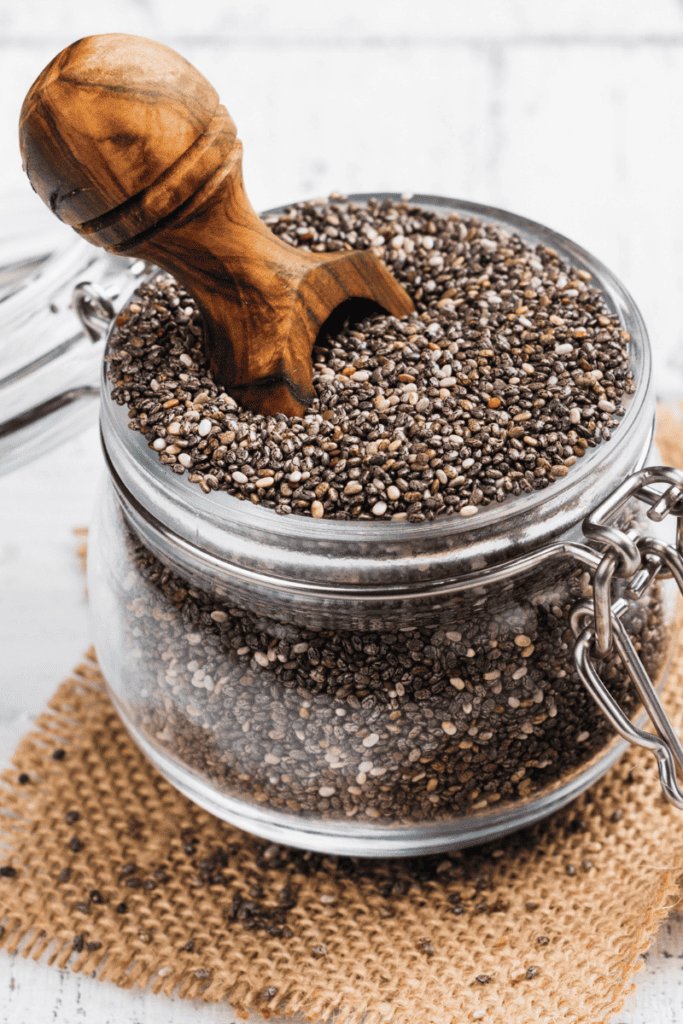
Mix 1 tablespoon of chia seeds with 3 tablespoons of water and let the mixture sit for 5–10 minutes until it thickens. Use this mixture to replace one egg in your recipe.
Avocado
Surprisingly, ripe avocado can be used as an egg substitute in recipes that require a creamy texture. Mash 1/4 cup of avocado to replace one egg.
Soy or Almond Yogurt
Yogurt made from soy or almond milk is a popular vegan egg substitute. Use 1/4 cup of soy or almond yogurt to replace one egg in your recipe.
Tahini
Tahini, a paste made from ground sesame seeds, is a healthy and flavorful option for egg replacement. Use 3 tablespoons of tahini to replace one egg.
Mashed Potatoes
Mashed potatoes may seem like an unusual choice, but they can add moisture to your recipe as an egg substitute. Use 1/4 cup of mashed potatoes to replace one egg.
Pumpkin Puree
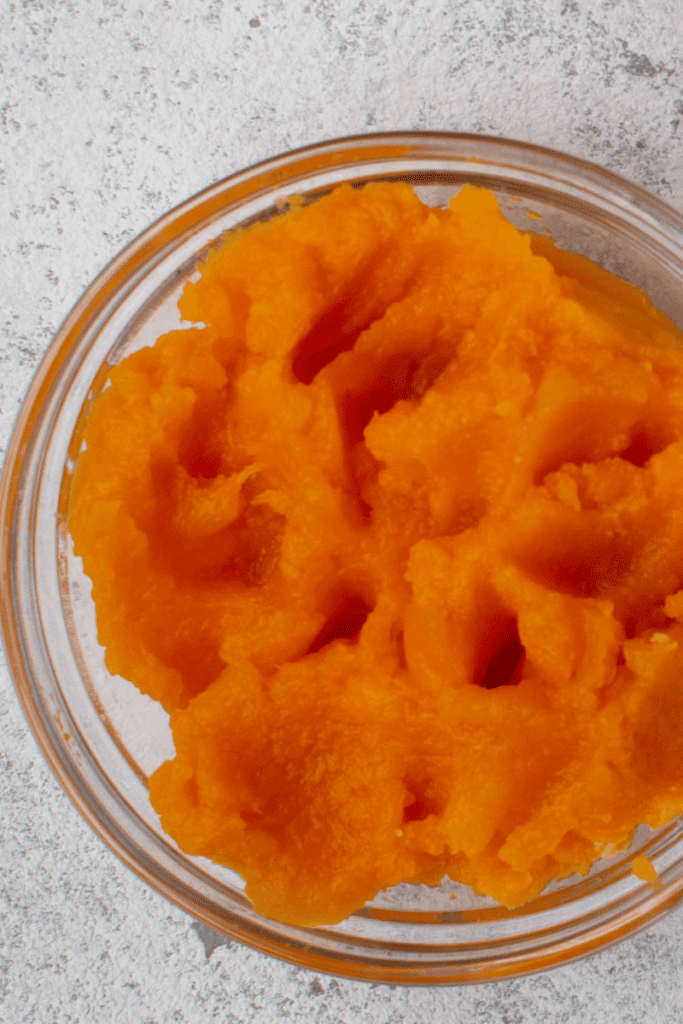
Pumpkin puree is a great option for recipes that require a fall flavor. Use 1/4 cup of pumpkin puree to replace one egg in your recipe.
Puréed Prunes or Dates
Puréed prunes or dates are a healthy and natural egg substitute option. Use 1/4 cup of puréed prunes or dates to replace one egg in your recipe.
Mayonnaise
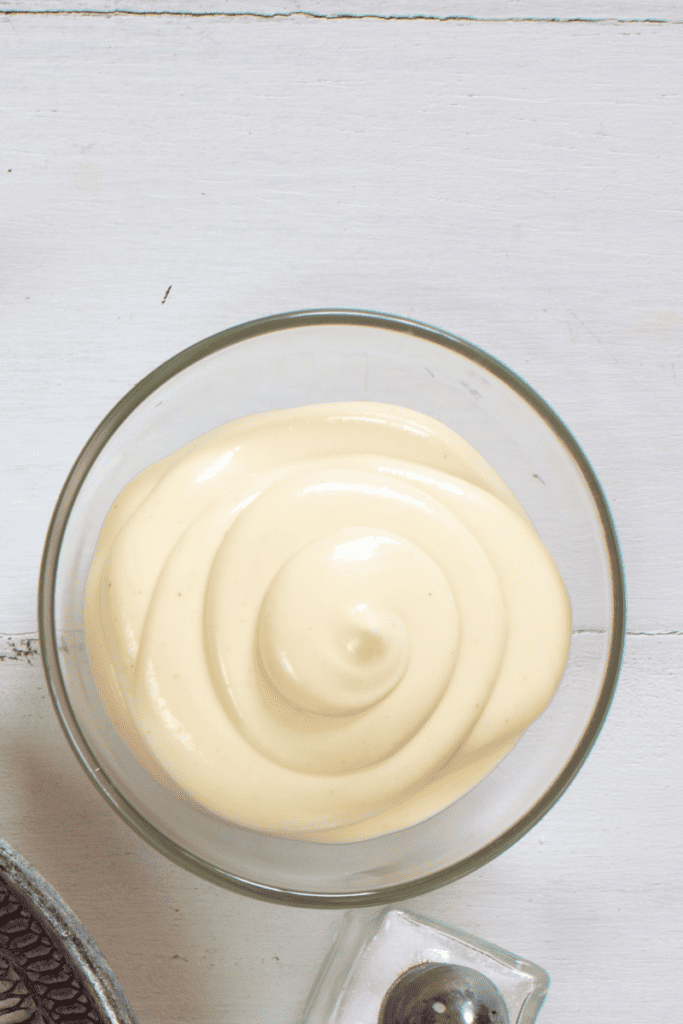
Mayo is a great egg substitute in some recipes, particularly in baked goods. Since mayonnaise is made with eggs and oil, it can add moisture and richness to your recipes. You can typically substitute 3 tablespoons of mayonnaise for each egg in a recipe.
Mayonnaise is a good choice for recipes like cakes, brownies, mug cakes, pancakes, and quick breads. However, it may not be suitable for all recipes, especially those where the egg primarily acts as a binding agent, as mayonnaise does not have the same binding properties as eggs.
It’s essential to consider the specific recipe and how the egg functions within it before using mayonnaise as a substitute.
Other Egg Replacements
Commercial egg replacers are becoming more popular, and you can find them in health food stores and online. They are typically made from potato starch, tapioca flour, or arrowroot powder and contain a blend of leavening agents and binding agents.
One of the benefits of using commercial egg replacers is that they offer consistency and convenience. You don’t need to worry about using the right combination of ingredients, and they are easy to store. They are also suitable for vegans and people with egg allergies.
However, commercial egg replacers can be expensive and may not be readily available in all areas. Additionally, they may not work well in certain recipes or may alter the taste and texture of your dish.
Ultimately, the choice of egg replacement will depend on your personal taste preferences and the recipe you are making. Don’t be afraid to experiment with different substitutes and find what works best for you.
